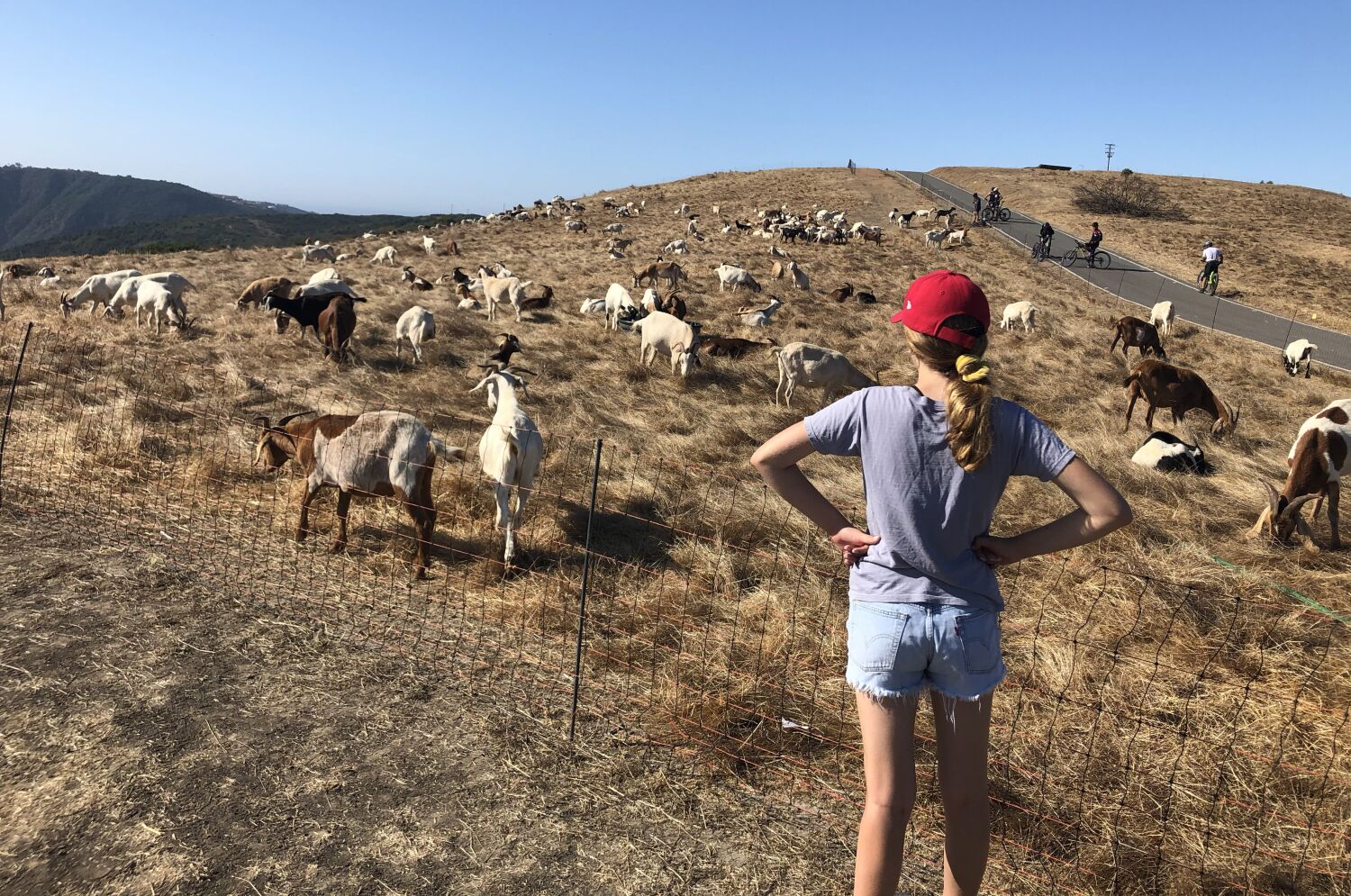Global Courant
In recent years, Californians have increasingly put the voracious and almost indiscriminate diet of goats to work, minimizing fuel for wildfires statewide—a method that has been heralded as sustainable, economical, and effective at reducing of undergrowth which can become dangerous in the hot summer months.
But goat farmers worry that a recent change in state labor requirements for herders could jeopardize the industry’s future — which some say is particularly important this year after an extremely wet winter left even more fuel for wildfires.
Goat herders were recently reclassified by California employment regulators, distinguishing them from sheep herders — a new distinction that means goat herders are no longer eligible for a monthly herder’s pay, set at a minimum of $2,755 plus required overtime. Instead, starting Jan. 1, employers will be required to pay goat herders at an hourly rate, now set at $15.50 for farm workers, plus required overtime.
And given the nature of a goat herder’s job, which is considered available 24/7, industry leaders and the California Farm Bureau estimate the change would work out to nearly $14,000 per month.
“We can’t afford that; cities can’t afford that,” said Tim Arrowsmith, the owner and manager of Western Grazers in Red Bluff, who employs a few dozen herders for his thousands of goats. He said the monthly salary is almost four times what he currently pays his goat herders, which he already considers a fair wage, noting that they are also provided with housing, groceries, cell phones and clothing.
The working goats of Western Grazers in Redding, California eat brushwood and dry grass, which is a wildfire preventative measure.
(Tim Arrowsmith)
Arrowsmith said if this switch comes into effect next year he will not be able to continue his goat grazing business – and many areas that need his easy and environmentally friendly firefighting will face a loss.
“We’ve lost millions of homes… we’ve lost lives, cities have burned down” from wildfires, Arrowsmith said. “To take goats off the table when they do such an effective job in places where you can’t get weed eaters or equipment… it’s crazy.
“That’s really what it’s about, firefighting, fuel reduction … so the state doesn’t burn out,” Arrowsmith said.
Arrowsmith said about 90% of his company’s contracts are aimed at minimizing wildfire fuel.
Officials from the State Department of Industrial Relations and the Employment Development Department did not directly respond to questions from The Times about the reclassification.
According to Bryan Little, director of employment policy for the California Farm Bureau, most goat herders in California come to work from Peru on temporary work visas.
(Marc Martin/Los Angeles Times)
From Laguna Beach to Sacramento, goats have become an easy and smart way to reduce scrub, especially in areas that are difficult to access, such as rocky, steep mountainsides. Federal, state and local governments, as well as homeowners associations and parks, have contracted goat grazing companies for this work.
“Goats are particularly well suited to wildfire fuel control,” said Bryan Little, director of employment policy for the California Farm Bureau, wrote in a recent post about the issue. “While they will graze dry grass like sheep, goats also devour highly flammable higher shrubs that sheep don’t notice.”
Little and others in support of goat grazing businesses have recently provided support Assembly Act 1099, thus preserving the current compensation requirements for goatherds. But Assemblyman Megan Dahle’s (R-Redding) proposal is not yet scheduled for a committee hearing.
Little and Arrowsmith said the majority of California goat herders — of which there are likely fewer than 100 — come from Peru on temporary work visas, which usually stay for about three years. Arrowsmith said most of its employees are able to send money home to their families, build houses and even send their children to private schools, citing the current compensation package as more than a fair wage.
But Lorena Gonzalez Fletcher, chief executive of the California Labor Federation, said there needs to be more scrutiny on these workers, whom she called particularly vulnerable, even though she agrees it probably doesn’t make sense to think of them as hourly wagers.
“We are talking about taxpayer money being used to promote goat farming. Don’t we have a responsibility to look at this (industry)?” said Gonzalez Fletcher. “No one is overseeing this.”
She said that just because it’s a small cohort of casual workers doesn’t mean state officials should assume the status quo works. She pointed out that last year the Western American sheepherders banded together to sue their employerssaying they artificially suppressed wages.
“It’s an issue we need to look at,” said Gonzalez Fletcher, who wrote and helped defend the farmworker overtime legislator when she was a legislator representing San Diego. Legislation signed by the then government. Jerry Brown also increased the required compensation for goat herders in 2016, who earned just under $2,000 a month in 2019. With salary increases and newly required overtime payments, the minimum monthly wage has increased to $3,853 as of this year, said the Department of Labor Relations.
Given their long hours and periods away from their families, Gonzalez Fletcher said it’s likely these goat herders still deserve better compensation. She would like to see California goat employers working on longer-term solutions, rather than just looking at withdrawing this new classification.
“I want to do everything I can to make it work for our agricultural industry, and we need these reduction opportunities,” said Gonzalez Fletcher, “but if we allow an exemption without any oversight for these Peruvian goat herders, what comes next? “
For Arrowsmith, he said there is no way he can continue his business – which grew to several thousand now a decade ago – if this change continues.
“It’s really been a story of hard work, sacrifice, sweat and luck,” he said, “but now we’re fighting the state of California.”








